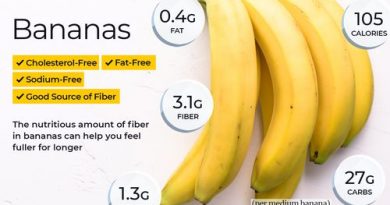The One Nutrient That Improves Longevity… That You’re Missing
HurryTheFoodUp is reader-powered. If you click through using links on our site we may earn a small commission at no cost to you.

Here’s the fifth podcast from Hurry The Food Up and Sports Nutritionist James LeBaigue.
Listen to the podcast on your favorite provider or click play below.
The Secret Ingredient Is…
The average American is consuming half the daily recommendation for this nutrient, yet it’s something that has been shown to reduce the risk of various diseases and through that, improve longevity.
Quick fixes or hacks to improve health are hard to come by, but this one does make a significant difference which is backed by research, and we’re going to dig into that in this episode.
I once worked with a client who came to me for advice on how to improve their diet and their health.
Health Transformations Through Diet
They already ticked some of the boxes: they didn’t smoke, they didn’t drink alcohol and they were physically active.
They ran a couple of times a week and also did some swimming, so by all accounts were doing well.
However, there was one area of their diet that was lacking considerably, and it’s the focus of today’s episode.
The Hidden Barriers to Fibre Intake
My client wasn’t consuming much in the way of fiber, and this was a huge area that we could target to make improvements.
They gave me various reasons for it such as a dislike for vegetables and a dislike for wholegrain carbohydrates, but this wasn’t the reason.
After going through it more and, excuse the pun, airing the dirty laundry, we got to the root of the problem which is a significant barrier for many people, and that’s how fiber caused them to have lots of gas.
Why Focus on Fibre?
Later in this episode, we’ll go through ways to reduce any unpleasant side effects of consuming more fiber, because it definitely can happen.
But we should probably start by asking why the fuss? Why is the focus on fiber, and why does it matter that so many people are missing the daily targets for it?
The short answer is that fiber helps reduce the risk of high cholesterol, it helps to reduce the risk of colorectal cancer and it helps to control blood sugar levels.
The Science of Fibre and Health
This is in part why fiber is crucial when it comes to longevity came, because it plays such a big part in reducing the risk of disease.
There’s still a lot of research ongoing into the exact mechanisms and role that fiber plays in our health, but it’s clear from a variety of different studies that it has a positive impact through the way it changes our absorption of food within the gut, as well as its effect on the gut microbiome.
Different Types of Fibre Explained
There are 2 main types of fiber which have slightly different ways of affecting the food that we eat and our health.
The first, soluble fiber, is like a thick gel. Imagine you had a full tank of fuel in your car, but instead of being able to use the fuel in controlled amounts there was no way to do this; it all just came out in one quick burst. Sure, you might get a lot of power for a short amount of time, but ultimately it’s unhelpful.
Practical Tips for Increasing Fibre Intake
You can think about soluble fiber in a similar way in helping to slow down the digestion and absorption of food and certain nutrients.
The thick, goopy gel-like substance slows the absorption of nutrients like carbohydrates and fat, and this is why it can help reduce the risk of heart disease, as well as being beneficial for controlling blood sugar levels in non-diabetic and diabetic people.
Epidemiological studies demonstrate a negative correlation between fiber intake and the risk of type 2 diabetes, especially with a diet high in whole grains, fruits, and vegetables. This means that as fiber intake goes up, the risk of type 2 diabetes goes down – which is a hugely positive finding.
Addressing Common Misconceptions
The other is insoluble fiber, and it has a slightly different role. Your waste bin is a great way to imagine the impact that insoluble fiber has. If you have a waste bin without a bag in it, it does half a job. You can put rubbish in it, but when you come to empty it it’s probably going to be far harder.
You might get bits of rubbish stuck in the bin and have to empty them individually, and you might get lots of horrible ooze from the rubbish that’s then in your trash bin – and it smells bad.
Well, insoluble fiber is like the bag that’s in your waste bin. It keeps everything in it neatly, protects the lining of your gut from coming into contact with toxic substances, and helps you pass it through your bowels to get rid of it as feces.
Insoluble fiber helps to prevent constipation and has been linked with reducing the risk of colorectal cancer because of this, as well as problems such as diverticular disease.
Conclusion: The Impact of Fibre on Health
Fibre is also very beneficial for weight loss, and we’ll cover that later in this episode.
So it’s safe to say that fiber is incredibly beneficial, but do you remember that stat I mentioned at the start?
The average American consumes around 15g of fiber per day, with the recommendation being over at least 30g of fiber per day.
Studies used in this podcast and article:
The Health Benefits of Dietary Fiber
Therapeutic Benefits and Dietary Restrictions of Fiber Intake
You can sign up for our newsletter and get your free 7-day healthy veggie meal plan right here. Check your spam if you don’t see it!
And finally: More vegetarian podcasts this way!




